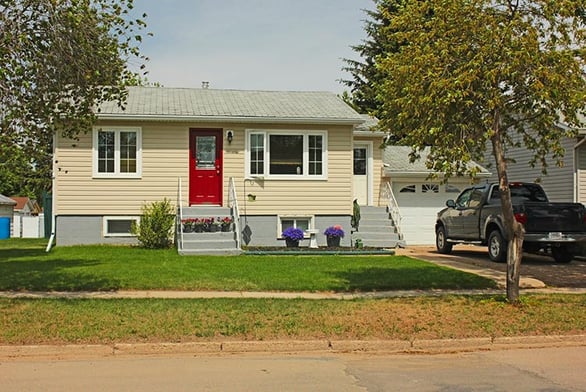
If you’ve browsed any real estate site for properties, you have likely encountered the term “single-family home” numerous times. This is what the average person has in mind when they think of a home. A single-family home can serve a variety of functions that include living, renting, selling, and more. In this post, we will focus on defining what a single-family home is and the pros and cons of renting one.
Defining a Single-Family Home
According to the U.S. Census Bureau, a single-family home is defined as a property that is “fully detached, semi detached (semi attached, side-by-side), row houses, and townhouses.” For attached units, the Census requires the units to “be separated from the adjacent unit by a ground-to-roof wall in order to be classified as a single-family structure.” The units also “must not share heating/air-conditioning systems or utilities.”
Single-family homes are favored by both homeowners and investors. These properties are great residencies and they can be turned into income-generating properties. This versatility can potentially provide homeowners with income and appreciation while they own the property.
Potential Advantages of Owning a Single-Family House as a Rental Property
There are several advantages of using a single-family home as a rental property. Some of the main benefits include:
Appreciation: single-family homes can be some of the most lucrative rental properties on the market. The rate of appreciation for these properties has been nearly 4% over the last 25 years. Since they are in high-demand, there are few vacancies in these properties. The vacancy rate is only 3.3% nationwide for single-family homes. Additionally, there are potential tax benefits that come along with single-family homes. This includes money spent on maintenance, repairs, and more.
Less turnover: The average single-family renter stays for nearly 3 years. This is double the tenure of the average apartment renter. Since the turnover rate is less, investors in these homes enjoy cash flow for longer periods and it’s relatively easy to find a new renter when the previous one moves out.
Selective over tenants: As an investor in this type of property, you can be very picky about who you choose to rent your property to. Since you only have one vacancy to fill, you can afford to choose a tenant who has a great background and is likely to stay in your property over a long period of time.
Disadvantages of Owning a Single-Family House as a Rental Property
There are a few drawbacks to renting a single-family home. The main cons include:
Tenant management: One of the cons of investing in a home is that you will likely have to do some tenant management. Tenant management includes all of the administrative work you will have to do for your property, including inspections, collecting rent, dealing with emergencies, etc. This part of investing in a property is not passive at all.
Repairs: Repairs are a routine and costly aspect of managing a home. 1 in 20 homes needs over $5,000 in repairs over the first few years of ownership. If you own property over a long period of time, you will likely run into many repairs. This will cut into your profits, but it’s a cost of doing business.
Property maintenance: The tenant is not in charge of maintaining the property. In order to preserve the value of your property, you will be required to do property maintenance, which includes roof repairs, painting, plumbing, trash removal, and more.
Although the disadvantages of investing in a single-family home can be a nuisance, it still can be a great asset to own in your portfolio and rent for many years. Investors who own single-family homes have typically seen increased rent payments and increased appreciation with their assets over time.
This material is for general information and educational purposes only. Information is based on data gathered from what we believe are reliable sources. It is not guaranteed as to accuracy, does not purport to be complete and is not intended to be used as a primary basis for investment decisions. It should also not be construed as advice meeting the particular investment needs of any investor. This document may contain forward-looking statements based on expectations and projections. Those statements are sometimes indicated by words such as “expects,” “believes,” “will” and similar expressions. In addition, any statements that refer to expectations, projections or characterizations of future events or circumstances, including any underlying assumptions, are forward- looking statements. Such statements are not guarantees of future performance and are subject to certain risks, uncertainties and assumptions that are difficult to predict. The income stream and depreciation schedule for any investment property may affect the property owner’s income bracket and/or tax status.



